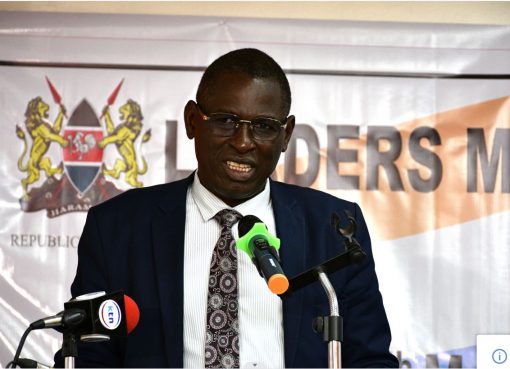The National Counter Terrorism Centre (NCTC) has embarked on the process of putting in place a five-year National Strategy that will guide the country in preventing and combating violent extremism.
The NCTC’s efforts to come up with a more inclusive and participatory National Strategy to Prevent and Counter Violent Extremism 2024–2029 has brought together all sectors of the community in all the counties to give their input through a draft it has presented so that their views can be included in the final document.
National Counter Terrorism Centre Director Dr. Rosalind Nyawira said the Centre is reviewing the 2016 Strategy in order to have a document that can counter violent extremism due to the changing nature of people’s lives and for the country to be up to date on what is happening across the globe.
The reviewed National Strategy to Counter Violent Extremism includes key updates and improvements, which include addressing issues related to gender, youth, inclusion, and the need for male mentorship. The approach to monitoring and evaluation has been improved by providing clear outcomes that will serve as the units of measure for impact; it also addresses resourcing, sustainability, and clarity on violent extremism as defined by the Prevention of Terrorism Act 2012, distinguishing it from other forms of crime, among others.
Dr. Nyawira, who was speaking during the Second Round of Public Participation on the Revised National Strategy to Counter Violent Extremism held at a Nairobi hotel, said the purpose of the strategy, which will be translated into Kiswahili, aims to have a secure country and to ensure that Kenya does not experience the kind of terrorism attacks it had in the past.
“We know that there are a lot of changes, communication strategies, communication terrorists, use of the new technology by terrorists, and online radicalisation going on,” she said, adding that if the country does not shrink the pools of recruitment within communities, then carrying out our other measures at strategic levels will not help.
The Director added, “We, as a community and actors in security, understand how this threat is changing and are able to serve security within ourselves. This is why we go to the ground and start there.”
Regarding terrorism, Dr. Nyawira, the nation, has seen a lot of morphology and geopolitics come into play, and since Kenya is not isolated and is part of the globe, there is a need to be careful and vigilant so that Kenyans are not overtaken by such incidences.
Dr. Nyawira reminded Kenyans that the attacks they have witnessed in the past are an indication that the perpetrators are still active, a call that should make those mandated with security issues to be more vigilant and show responsibility.
“We rally communities because of the realisation that Kenyan communities and citizens have been recruited into violent extremism and sent back to carry out attacks; some went to the combat, yet some died, and others are still there,” said the NCTC Director.
Dr. Nyawira said the recruitment has moved from physical to online spaces since most people have access to technology, reminding Kenyans that not everything that comes through the internet is good.
Due to these challenges, she observed that NCTC has undertaken capacity building to educate caregivers, youth, and visits schools to educate them on how to prevent and counter violent extremism when they encounter such.
“There is a lot of disinformation and misinformation on the Internet; sometimes people will take up this threat when it is not your call. It is important when people are alive to it and how they can insulate our population against radicalisation,” she said.
She said when NCTC delivers the strategy, it will be a joint effort that will include the implementers, the communities that have been part of the process, the mechanism of County Action Plans and County Engagement Forums.
The 47 counties have county engagement forums that bring every stakeholder among them, who include the media, religious leaders, education sector, security actors, community leaders, youth, state actors, and civil society, among others.
Dr. Nyawira commended the multiagency group for the good work it has been doing in countering violent extremism while noting that NCTC has also done a lot in resilience-building programmes among communities besides implementing the County Action Plan.
She at the same time noted that the process of putting up the strategy document has been consultative, an exercise which the Director said required NCTC to move around the country to listen to the people and to share the draft before coming up with the final draft that will be posted for public access before its launch.
“We are hoping that this document strategy will be ready in the next few months, but it is still a journey we are undertaking,” she stated.
Speaking when he officially opened the two-day forum, Nairobi County Commissioner David Wanyonyi said through the 2016 strategy the country made some strides as no major terrorist attacks have happened in Nairobi and other cities for the last six years.
Participants who attended the forum were drawn from Nairobi, Kiambu, Muranga, Kajiado, Wajir, and Mandera counties.
By Bernadette Khaduli





